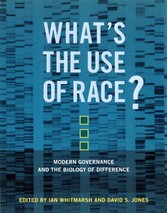Suchen und Finden
What's the Use of Race? - Modern Governance and the Biology of Difference
The post--civil rights era perspective of many scientists and scholars was that race was nothing more than a social construction. Recently, however, the relevance of race as a social, legal, and medical category has been reinvigorated by science, especially by discoveries in genetics. Although in 2000 the Human Genome Project reported that humans shared 99.9 percent of their genetic code, scientists soon began to argue that the degree of variation was actually greater than this, and that this variation maps naturally onto conventional categories of race. In the context of this rejuvenated biology of race, the contributors to What's the Use of Race? investigate whether race can be a category of analysis without reinforcing it as a basis for discrimination. Can policies that aim to alleviate inequality inadvertently increase it by reifying race differences? The essays focus on contemporary questions at the cutting edge of genetics and governance, examining them from the perspectives of law, science, and medicine. The book follows the use of race in three domains of governance: ruling, knowing, and caring. Contributors first examine the use of race and genetics in the courtroom, law enforcement, and scientific oversight, then explore the ways that race becomes, implicitly or explicitly, part of the genomic science that attempts to address human diversity, and finally investigate how race is used to understand and act on inequities in health and disease. Answering these questions is essential for setting policies for biology and citizenship in the twenty-first century.
Alle Preise verstehen sich inklusive der gesetzlichen MwSt.









